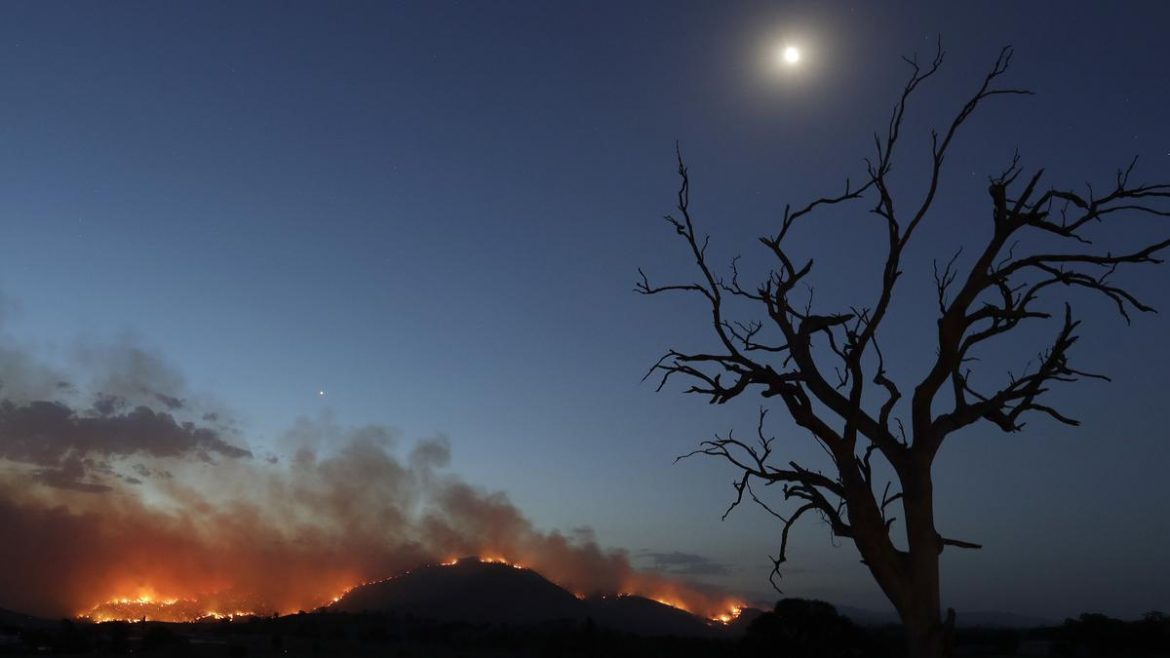A new study said that Australia’s Black Summer wildfires in 2020 widened the ozone hole by 10 per cent and warns that smoke particles from such wildfires can erode the Earth’s protective layer shielding it from the sun’s ultraviolet radiation.
Published last week in the Nature, the research assessed the impact of smoke from the “Black Summer” mega wildfire in eastern Australia that burned from December 2019 into January 2020, which killed 36 people and harmed over three billion animals.
The megafire was Australia’s most devastating on record and it scorched tens of millions of acres and pumped over a million tons of smoke into the atmosphere, the researchers said.
They identified a new chemical reaction by which smoke particles from the Australian wildfires made the ozone depletion worse and said the fires may have led to a 3 to 5 per cent depletion of total ozone in regions overlying Australia, New Zealand, and parts of Africa and South America by triggering this chemical reaction.
Also, the study suggests the fires may have eaten away at the edges of the ozone hole over Antarctica by late 2020, thereby widening it by 2.5 million square kilometres, or about 10 per cent of its area compared to the previous year.
The United Nations recently noted that ozone depletion around the world is on a recovery track due to international efforts to phase out chemicals depleting the Earth’s protective layer, but scientists maintained that the long-term effect of wildfires on its recovery remain unclear.
Read also: UN chief calls for urgent need to end global heating with cold, hard facts
Previous research had found that chlorine-containing compounds such as those emitted by factories could react with the surface of fire aerosols and set off a cascade of chemical reactions producing chlorine monoxide – the ultimate ozone-depleting molecule.
The new study found that the Australian wildfires likely depleted ozone via this chemical reaction.
As long as chemicals from such mega wildfires persist in the atmosphere, researchers say they could trigger a reaction that temporarily depletes the ozone layer.
“The effect of wildfires was not previously accounted for in [projections of] ozone recovery. And I think that effect may depend on whether fires become more frequent and intense as the planet warms,” study co-author Susan Solomon from MIT said.
Researchers also found that some of the chlorine-related chemistry they discovered in the atmosphere could not explain all the changes they found in the Earth’s upper atmosphere.
Story was adapted from the Independent.
